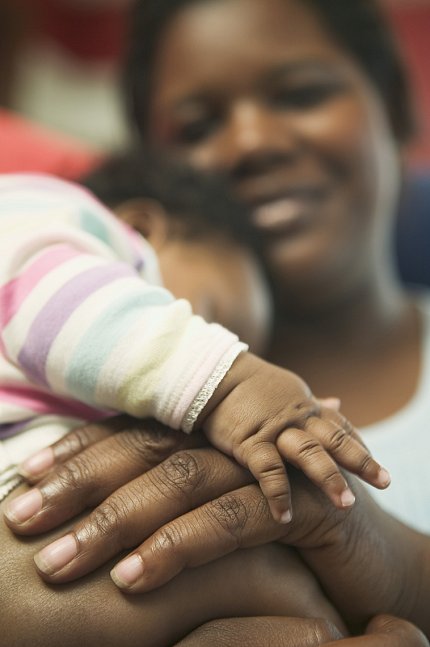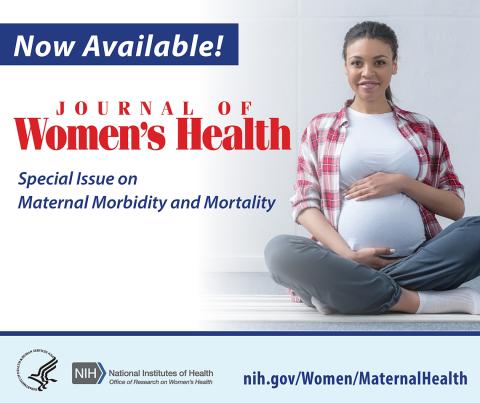Improving Maternal Health
ORWH Publishes Special Issue of JWH

Staff and researchers from the Office of Research on Women’s Health have collaborated on a special edition of the Journal of Women’s Health (JWH). The new issue characterizes the increasing problem of maternal morbidity and mortality (MMM) in the United States, suggesting solutions and proposing a research agenda for understanding, treating and preventing maternal health complications.
U.S. women—particularly those from underrepresented racial and ethnic populations and those who reside in rural areas—are more likely to die from complications related to pregnancy or childbirth than women in peer nations. Each year, about 700 U.S. women die as a result of pregnancy or delivery complications, and approximately 50 percent of maternal deaths are preventable.
For every pregnancy-related death in the U.S., 70 women experience a “near miss.” Cases of severe maternal morbidity (SMM)—unexpected outcomes of pregnancy, labor or delivery resulting in serious short- or long-term consequences to a woman’s health—have almost doubled over the past decade. SMM affected more than 50,000 U.S. women in 2014.
ORWH associate director Dr. Samia Noursi served as guest editor and, along with NIH colleagues, contributed the introduction. The issue delves into “epidemiological patterns and trends, biological and physiological risk factors, external risk factors, social determinants of health and proven and potential interventions that are poised to be delivered to a broader audience,” stated the authors.
Maternal Health Disparities

Photo: Big Cheese Photo/Getty Images
Many U.S. subpopulations—including underrepresented racial and ethnic groups, transgender individuals and women of advanced maternal age—have higher rates of MMM due to socioeconomic disadvantages, comorbidities, implicit bias and other factors.
One article discusses how influences on the health care system—including clinical, behavioral, social, structural and political determinants—and their intersection with race, class and gender contribute to MMM.
Another article delves into MMM in American Indian and Alaska Native women, identifying hemorrhage, cardiomyopathies and hypertensive disorders of pregnancy as leading causes of maternal mortality in this population.
Other articles explore implicit bias and its contribution to racial disparities in MMM. One article specifically looks at persistent MMM health disparities among Black women, associated comorbidities and relevant structural inequities within and outside the health care system.
Comorbidities, Additional Considerations
Women with medical conditions predating conception or conditions that emerge during pregnancy experience higher rates of MMM. Several articles discuss how the risk increases as the result of co-occurring conditions such as dysglycemia, physical and cognitive disability, cardiovascular disease, perinatal depression, sleep-disordered breathing and infection.
Other contributing factors to MMM range from environmental factors and dietary supplements during pregnancy to such societal issues as homicide, suicide, drug overdose and intimate partner violence. Also explored are pain management during pregnancy and the problem of MMM around the world.
Addressing MMM

To mitigate MMM in the U.S., there are new clinical tools and protocols (or “care bundles”) designed to improve obstetric safety. Another article discusses how existing health information technologies could be leveraged to address health disparities in MMM stemming from racial, ethnic, socioeconomic and geographic factors.
Noursi and Dr. Michael Lu conclude by proposing a new MMM research agenda for the biomedical community. Lu and Noursi identify four key areas that require further research: factors causing higher risk for MMM in some populations; the long-term effects of pregnancy complications; better safety and quality of maternal care; and the social, structural and environmental determinants of maternal health.
These areas suggest an agenda for the next stages of research and provide a guide to biomedical investigators, policymakers and funding organizations toward addressing MMM.
